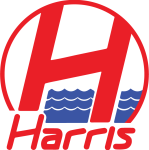Ensuring the purity of our water resources is crucial for maintaining public health, supporting ecosystems, and sustaining agricultural productivity. Contaminated water not only poses serious health risks but also undermines economic stability and social well-being. Learn four ways that water systems can become contaminated and the solutions that safeguard this vital resource.
Point Source Pollution
Point source pollution refers to contaminants that enter water systems from identifiable and discrete locations. Prime examples include industrial discharges from factories and effluents from sewage treatment plants. These pollutants may carry toxic substances into rivers, lakes, and reservoirs, impacting the quality of water and threatening aquatic life.
Regulating point source pollution is imperative to preserving water quality. Stringent policies and constant monitoring of industrial activities can help manage the effects of these pollutants. However, despite ongoing efforts, contamination from point source pollution continues to be a challenge when it comes to maintaining a clean water supply.
Nonpoint Source Pollution
Nonpoint source (NPS) pollution arises from various diffuse sources, making it more challenging to identify and control. Property owners, agricultural stakeholders, and public sector initiatives collaborate to implement best management practices that can mitigate the impact of runoff on water systems.
NPS pollution enters waterways primarily through rainfall or snowmelt moving over and through the ground. As this runoff moves, it picks up and carries away pollutants like pesticides, fertilizers, oil, and dirt from widespread areas like farms, roads, and urban centers. This contaminated runoff then flows into water bodies such as lakes, rivers, wetlands, coastal waters, and underground sources of drinking water.
Aging Infrastructure
Aging infrastructure, including old pipes and storage systems, presents a substantial risk to water purity. Corroded pipes can leach harmful metal particulates. Holes in pipes can allow contaminants from the surrounding soil and environment to infiltrate the water supply system. These contaminants can include bacteria, viruses, pesticides, and other harmful substances that can pose significant health risks when ingested.
Discolored water from the tap could indicate rust, sediment, or minerals leaching into the drinking water. An unexpected increase in water usage may suggest leaks, and standing water near the building may indicate pervasive water infrastructure issues. If you see these signs on your property, call an experienced sewer and water main company to repair or replace your plumbing components.
Natural Chemicals in the Soil
Water systems can become contaminated by naturally occurring substances. Arsenic, radon, and other substances can seep into groundwater, raising concentrations to harmful levels. While these elements are part of the earth’s composition, their presence in drinking water can lead to severe health issues over time.
Chemicals naturally found in the soil can infiltrate water systems as water moves through soil and rock formations containing these elements, dissolving them in the process. Water treatment facilities use filtration and chemical treatments to remove contaminants. Additionally, regular monitoring of groundwater sources helps identify elevated levels of natural contaminants, allowing for timely interventions to safeguard public health.
Water contamination poses significant risks to public health and environmental sustainability. Contamination arises from both artificial sources like industrial discharges and natural occurrences like arsenic in groundwater. Strategies to combat pollution include stringent monitoring of industrial activities, managing agricultural runoff, and employing advanced filtration methods in water treatment facilities. Ongoing efforts to maintain and upgrade aging infrastructure are also critical to ensuring potable water.




















